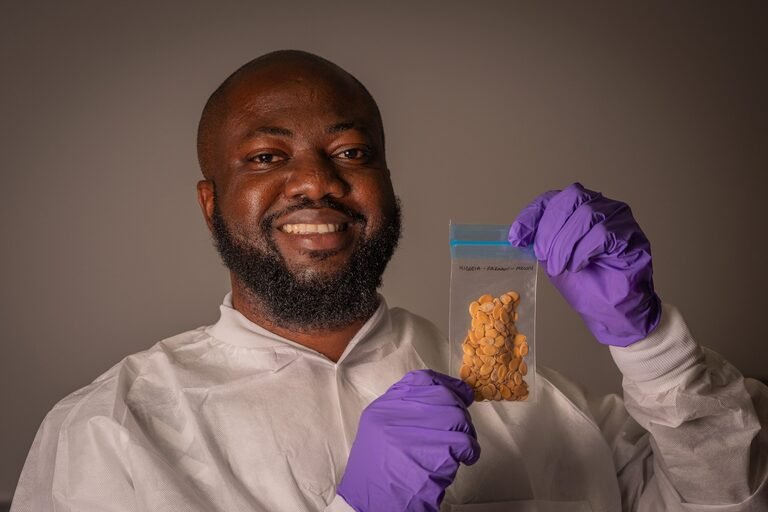Dr. Temidayo Oniosun, a Nigerian space scientist and founder of Space in Africa, is breaking new ground literally and figuratively by sending egusi seeds into outer space.
The renowned researcher, who is also affiliated with the MIT Media Lab and serves as a Non-Resident Senior Fellow at the Atlantic Council, has sparked national pride with his latest “Food for Space” initiative. His aim? To explore how indigenous African crops like Egusi can survive and thrive in microgravity environments.
“When astronauts stay in space for months, food becomes a major challenge,” Oniosun told our correspondent. “That’s why agriculture and food security are central to long-term space missions.”
For many Nigerians, the choice of egusi—a staple melon seed used in soups and stews—is more than scientific. It’s cultural. “I’m proud of this, not just as a Yoruba man but as a Nigerian. Egusi holds cultural significance, and now it’s heading into orbit. That’s historic,” he added.
Oniosun, a graduate of the Federal University of Technology, Akure (FUTA), has long championed Africa’s place in global space conversations. He recently hosted the launch of the African Space Agency in Cairo—a body whose blueprint his company helped shape.
His latest project is just the beginning. “We’ve signed a partnership that will send more Nigerian seeds to space,” he revealed.
Amid public curiosity, Oniosun firmly dismissed any suggestion that the experiment involves genetically modified organisms (GMOs). “Absolutely not. The seeds will undergo testing at the University of Florida and the International Institute of Tropical Agriculture in Ibadan. We’re studying how they behave in microgravity, not altering their genetics.”
From running a space club as an undergraduate to conducting pioneering experiments on international platforms, Oniosun’s journey reflects years of vision and persistence.
With advanced degrees in Meteorology, Satellite Applications, and a PhD from the University of Delaware, he stands as a testament to what’s possible when science meets cultural pride and ambition lifts off.
And when those egusi seeds return to Earth, the world may not only be watching they might be cooking too.










